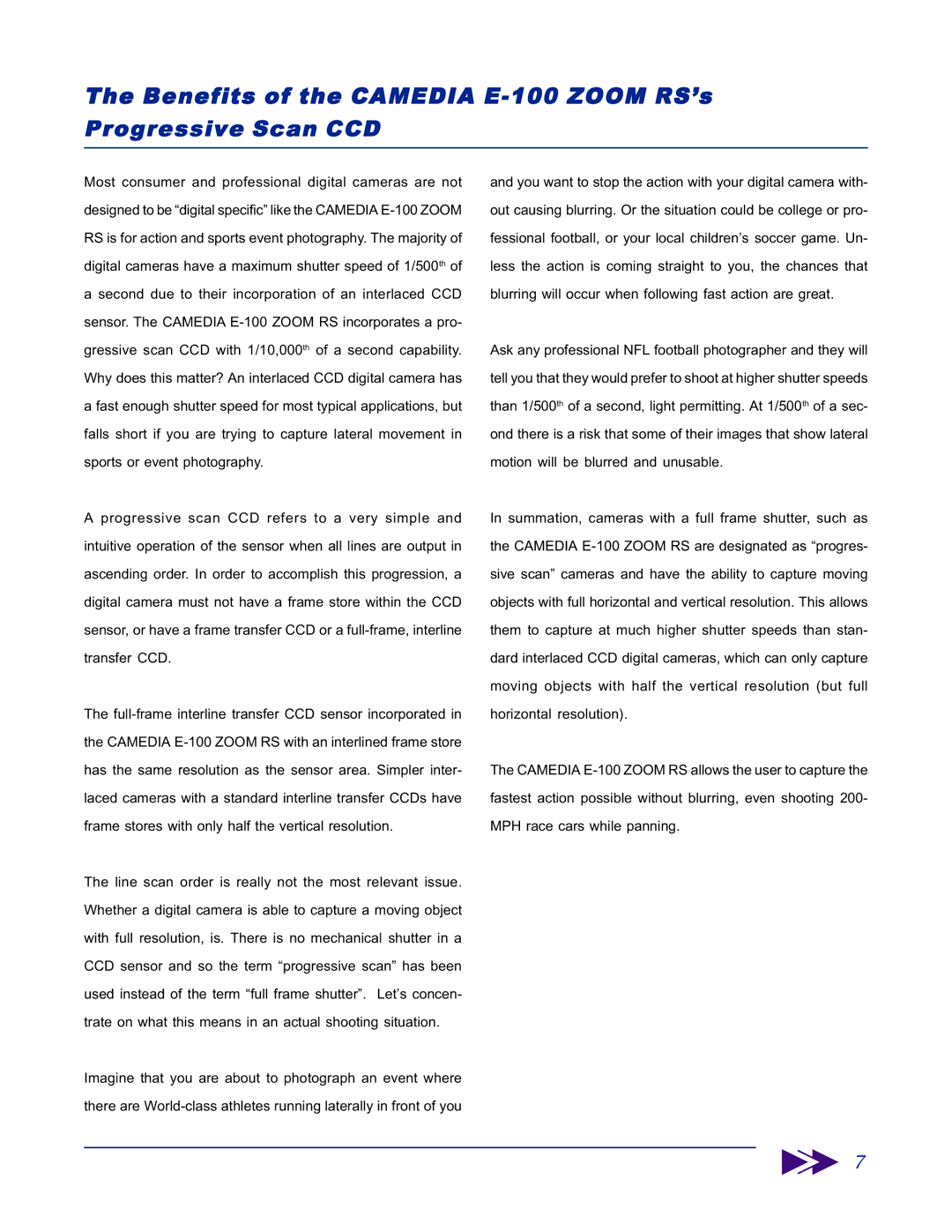
The Benefits of the CAMEDIA E-100 ZOOM RS’s
Progressive Scan CCD
Most consumer and professional digital cameras are not designed to be “digital specific” like the CAMEDIA
A progressive scan CCD refers to a very simple and intuitive operation of the sensor when all lines are output in ascending order. In order to accomplish this progression, a digital camera must not have a frame store within the CCD sensor, or have a frame transfer CCD or a
The
The line scan order is really not the most relevant issue. Whether a digital camera is able to capture a moving object with full resolution, is. There is no mechanical shutter in a CCD sensor and so the term “progressive scan” has been used instead of the term “full frame shutter”. Let’s concen- trate on what this means in an actual shooting situation.
Imagine that you are about to photograph an event where there are
and you want to stop the action with your digital camera with- out causing blurring. Or the situation could be college or pro- fessional football, or your local children’s soccer game. Un- less the action is coming straight to you, the chances that blurring will occur when following fast action are great.
Ask any professional NFL football photographer and they will tell you that they would prefer to shoot at higher shutter speeds than 1/500th of a second, light permitting. At 1/500th of a sec- ond there is a risk that some of their images that show lateral motion will be blurred and unusable.
In summation, cameras with a full frame shutter, such as the CAMEDIA
The CAMEDIA
7
